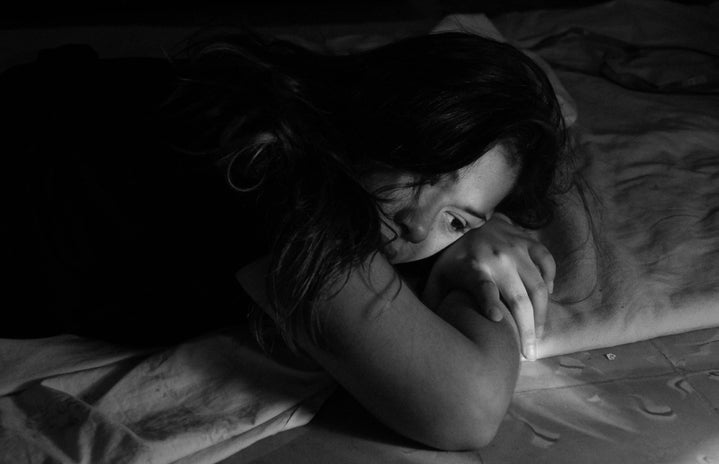Monitoring my anxiety more consciously as it has amplified over the past year, I have grouped the characteristics into two identifiable versions of anxiety I endure related to two environments: the social and the individual.
Social: Asocial Butterfly
My social anxiety is rooted in the notion of unfamiliarity, where the social phobia may activate around less familiar people and/or places. I am inclined to retreat to what my body constitutes as safe and familiar which is at home and/or alone. Two forms of this social phobia come about for me: (1) conscious insecurity about others’ perception of me and (2) a claustrophobic feeling from the mere fact of being around people with little thought to my perception by others. The former produces the physical symptom of an overwhelming tingling sensation as if all eyes are upon me while the latter brings about nausea and, therefore, a small appetite. The corresponding response I take to shake off the feeling is either exiting the area or finding a distraction, such as focusing intently on the words of a professor to transition my attention away from my inner thoughts.
Social phobia exacerbates your social awareness, and likely the isolation of the pandemic amplified the anxious reaction my body exhibits in social situations. This anxiety incages the individual, reducing their ability to interact and participate.
Lindsay Young’s poem Social Anxiety
“I walk into a room of poets, shrink down to the size of my shoes, I am in love with this room and I let it walk all over me.”
Individual: Overwhelmed Race Horse
This anxiety is individually focused and comes about by the awareness of having tasks to complete. Whether I am very nervous about an assignment or excited about reading a number of books, an overwhelming sensation is accompanied that makes the task difficult to accomplish. It feels as though the brain is so overloaded it becomes empty. Physical symptoms have included an overwhelming sensation, itching, twitching, and fatigue. My body reacts interchangeably by needing to move around or by refusing to move and freezing in place. This anxiety comes from perfectionism as well as impatience; whether nervousness or excitement, the body has trouble acting slowly in the present and instead of pinning after the future, the end product. I attempt to decrease this feeling through calming tea, movement, squeezing items like stuffed animals, breathing exercises, music, and ASMR. It feels like fighting the body because the body overloads.
My Anxiety Tools
Acceptance of anxious feelings is crucial to dealing with them. Even if you are unaware of the cause of your anxiousness, recognizing that it is there is enough to work through it. It is possible to deal with the unexplainable:
- It is necessary to transition slowly by pushing your boundaries into what feels uncomfortable, to re-adjust your body. Slow is an essential component.
- Learning to communicate newly established boundaries such as the places you will let yourself visit and the period of time is important, as accommodations are the necessary solution. Accommodations may include decreasing your presence in anxiety-enduring areas or increasing your alone time.
- Support systems are another essential component. Find others that will legitimize your anxiety and symptoms and be around to provide the necessary tools your body needs, such as facetiming friends to study and keep you on track when you get overwhelmed. Additionally, therapy and medication have had a large helping hand.
Why anxiety?
The inclination to write about my anxiety came from a recent setback in which my anxiety heightened and my support system reduced. These two collectively decreased my threshold for tolerance, making me more easily susceptible to irritability, in which anxious feelings were so overwhelming I reacted through isolation, crying outbreaks, reduced eating, and an inability to do school. Thankfully this was brief, but I am still undergoing the process of returning to a more healthy space. This slow progression comes along by regaining my own power as an individual, reassured by the fact that my previous progress was achieved most in part by myself. Anxiety feels and is constraining, so self-assurance in believing that you are capable of overcoming the feelings is an essential key.


